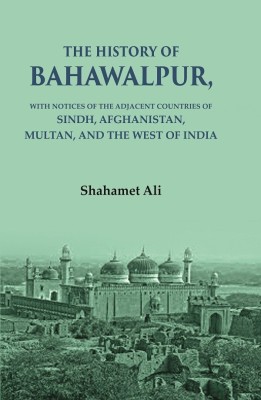The History of Bahawalpur: With Notices of the Adjacent Countries of Sindh, Afghanistan, Multan, and the West of India(Paperback, Shahamet Ali)
Quick Overview
Product Price Comparison
About The Book: The book an introduction to Bahawalpur's historical background and its geographical features. It outlines the geographical boundaries of Bahawalpur, which are defined by neighboring regions and rivers, and it also includes information about the dimensions of the territory. The book discusses the restoration of districts that were previously lost, a result of the British conquest of Sindh. Moreover, it portrays the gradual change in the landscape, transitioning from fertile land near the river to a parched desert in the southern region, where camel herders graze their animals. Within the book, "Tug Work" is examined as well, serving as a concise account of the family history of Nawab Bahawal Khan. This work was shortened by Peer Ibrahim Khan, a British native agent, upon the request of Captain J. D. Cunningham, a highly regarded figure known for his literary and political acumen. The book offers historical insights and underscores the loyalty of Bahawalpur to the British Government. About The Author: Shahamet Ali's education was made possible through the generosity of the British Government, which took the initiative to restore the College originally established during the time of the Mogul emperors. This restoration aimed to benefit Indian youth in Delhi and the surrounding regions. This College had faced the same fate as other public institutions in the city due to the decline of the Mogul empire. On the 20th of October in 1832, Ali was chosen to serve as a secretary in the mission led by Lieutenant-Colonel Sir C. M. Wade to Peshawar. His assignment required him to rendezvous with the Captain at Lodiana, who was then preparing for a diplomatic mission to the courts of Lahore and Bhawlpore. The goal of this mission was to negotiate treaties with those states to open up navigation on the Satluj and Indus rivers, in alignment with the efforts of Lieutenant-Colonel (later Sir) Henry Pottinger's mission to Sindh. Pottinger had visited the Amirs in Sindh


